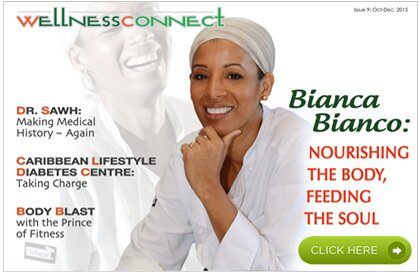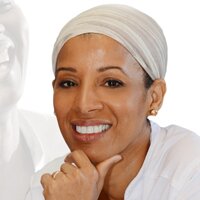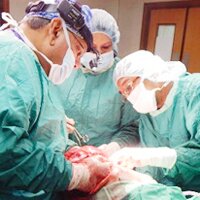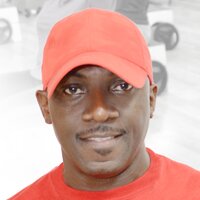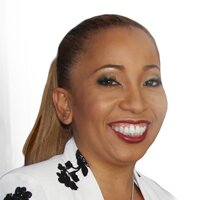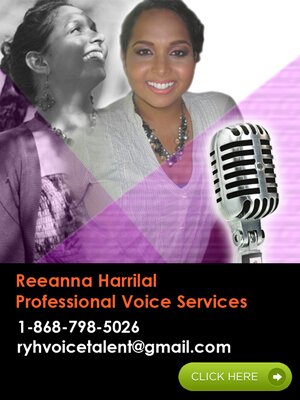 You may not think that happy events such as planning your wedding or getting a new job may cause your hair to fall out, but you’d be surprised to learn that ‘stress’ can not only result from negative factors but also positive factors in your life.
You may not think that happy events such as planning your wedding or getting a new job may cause your hair to fall out, but you’d be surprised to learn that ‘stress’ can not only result from negative factors but also positive factors in your life.
Local trichologist Patricia Neptune, who you can read more about here, explains that telogen effluvium (hair loss) can be caused by a myriad of factors.
Some of the worst cases she has seen were a man who worked in a paper bag factory, and a woman whose husband spray painted cars at their home. Also, often it is not the use of medicine that can cause hair loss, but coming off of it — abandoning birth control pills, for instance.
Furthermore, medication or supplements meant to help one thing may have a negative effect by depleting another crucial nutrient that hair needs — which is why she uses a Physician’s Desk Reference, used by doctors, to determine prescription drug interactions and help her clients.
The main causes of hair loss are:
Stress — both chronic stress to the mind and body, as well as traumatic stress to the hair itself through hairstyles and hair practices that involve braiding, tight ponytails, weaves, chemical treatments and aggressive brushing or combing
Diet — nutritional deficiencies or overdoses, or high intake of animal fat and other foods may induce hair loss; as well as various weight loss programs, or even the switching from one program to another
Health — illness, poor vitamin intake, menopause, pregnancy, cystic acne, diabetes, anemia, and poor blood circulation can all cause hair loss
Medical — alopecia, chemotherapy, radiation exposure, various medications, birth control pills, and hormonal imbalances such as polycystic ovaries are only a few of a vast array of possible medical causes
Environmental — photo toxic effect of sunlight, air pollutants, chemicals in water, hazardous employment (e.g. paint, cement, chemical and other factories)
Hereditary — inherited predisposition to hair loss, cystic acne, inflammation or other disorders
Cleanse, Nourish, Protect — the 3 pillars of Hair Care
 While not everyone may need the likes of a trichologist, there are many things we have control over that can help the quality and quantity of our hair, whether one has a ‘hair problem’ or not.
While not everyone may need the likes of a trichologist, there are many things we have control over that can help the quality and quantity of our hair, whether one has a ‘hair problem’ or not.
Here are Patricia’s tips for general hair care, that you can use in your daily life:
1. Drink water!
Your hair needs to drink, too! The importance of water can’t be over-emphasised. Despite eating the best of foods (which most of us don’t do, anyway!) we need to be drinking at least 2 litres of water per day. Your hair and your skin will thank you!
2. Pre-treat before chemical
If you have a sensitive scalp and want to do a chemical service (relaxer, curls, etc.), do a topical treatment a week before your service — this will greatly reduce burning and discomfort when the chemical is applied soon afterwards.
3. Stop over-washing!
Your shampoo can be the cause of your hair loss or poor hair quality! You don’t need to wash your hair more than once a week. Washing too often strips your hair of vital nutrients your hair needs to be the lustrous beauty you are proud of.
4. Pool & Sea Protection
If you absolutely must go into a pool with chlorine or the ocean with its vast array of pollutants to strip your hair of nutrients, it is best to put conditioner on your hair and then put on a bathing cap. While this may not protect your hair entirely, it is vital to at least have that extra layer of both conditioner and cap before the damage can seep through to your hair.
5. ‘Natural’ hair is not exempt
Having ‘ras’ or ‘natural’ hair does NOT make you exempt from needing treatments or proper hair care! You still need to have treatments, even if you proudly sport your ‘nappy’ hair.
6. Personal hygiene
Watch personal hygiene, both at home and at your salon. While you may notice (with horror and scorn!) if your hairdresser or barber uses the same comb or brush between different clients, you may think nothing of grabbing a quick swipe of your mom’s or daughter’s hairbrush on your way out the door. Think again! Hair is sensitive and often susceptible to many factors that may seem minor — and what affects one person may not affect the other, even in the same family.
7. Wrap it up!
When you toss and turn in your sleep, your hair is rubbing — rubbing right off your head, in some cases! So wrap it up with a stocking or other hair wrap to protect it while you sleep (your pillow will thank you — especially if you use a lot of hair product!)






